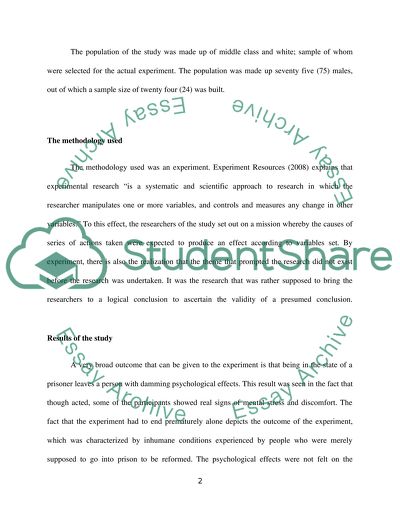Analysis of the Stanford Prison Experiment Research Paper. Retrieved from https://studentshare.org/psychology/1431570-analysis-of-the-stanford-prison-experiment
Analysis of the Stanford Prison Experiment Research Paper. https://studentshare.org/psychology/1431570-analysis-of-the-stanford-prison-experiment.


